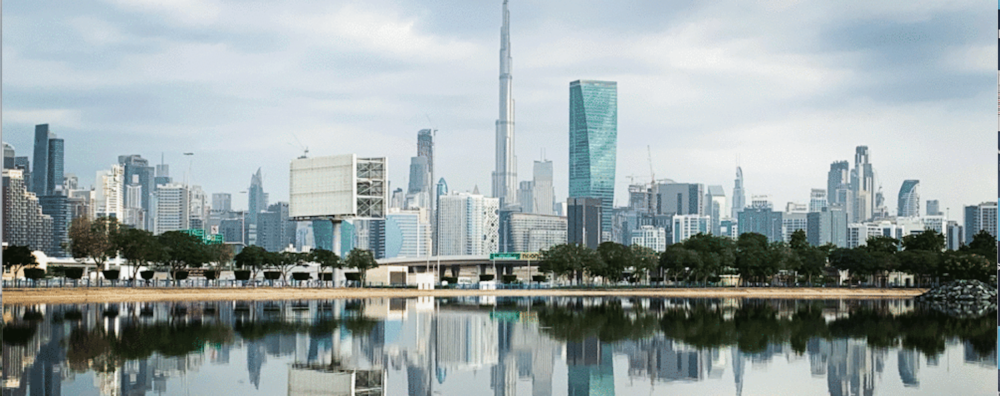[SUBTITLE: On feeling very thankful]
It never ceases to amaze me what can be accomplished practically overnight in Dubai.
Behind the dizzying construction work that goes on in the emirate there’s an army of immigrant labourers, who built the city’s skyscrapers, the mega malls, the highways, the Metro and the schools.
They’re transported by bus into the city each day from the camps in which they live. Their accommodation facilities are basic, conditions crowded. In one camp I saw photos of, the residents were eating on a floor lined with newspapers advertising the luxury watches, five-star hotels and high-end residential developments of Dubai.
The labourers pay employment agencies to get here – to escape the poverty of their home countries (places such as India, Bangladesh and Pakistan) and instead toil for low pay in the extreme heat of one of the world’s richest economies. All, or nearly all, of the money they earn – which can be as little as £150 a month – is sent back to their families.
The modern-day monoliths these labourers have created are truly staggering: the Palm Jumeriah, reclaimed from the sea; the tapering, glass Burj Khalifa – the construction of which involved pumping concrete nearly one kilometre into the sky; the Dubai Mall with its world’s largest aquarium (and more in the pipeline).
These obviously weren’t built overnight, but Dubai does tend to change very quickly. Over the past few months, we’ve watched a major fly-over that’s brought us 10 minutes closer to town be completed at breakneck speed. Yesterday, we drove past a small battalion of workers beavering away on the new Al Sufouh tram. While projects are frequently delayed, once they’re prioritised, they continue apace.
On a less-grandiose scale, our compound is staffed by immigrant workers who keep everything ticking over, tending to the landscaping, the communal areas, and maintenance issues. This week, we woke up to see that some 100 flags had appeared around our community’s perimeter. I could imagine the conversation: “We need more visibility,” a BMW-driving manager must have declared. “Bring flags.” And so off scurried the staff, to put up more flags than you’d see at the Queen’s Trooping the Colour.
I’m not sure what the terms and conditions are like for the employees in our compound, but the city’s construction workers arrive in Dubai to find their employer has almost total control over their pay, living quarters, diet, capacity to change jobs and their ability to return home.
To their families.
Several of my most moving interactions in Dubai have been with migrant workers who have children, back home, the same age as mine. I once got talking to a man who I noticed was watching me with my sons.
You might think this sounds creepy, but I guessed why he was staring and smiled. “How old?” he enquired. “Four and one,” I replied, “And yours?” I asked, intuitively. “A boy, four, same like yours,” he told me with a wistful expression. “And a baby girl I haven’t met yet.”
Short of paying for him to travel home to see his family, asking to see photos – which he duly pulled out of his wallet with pride – and giving him a phone card was the least I could do.


